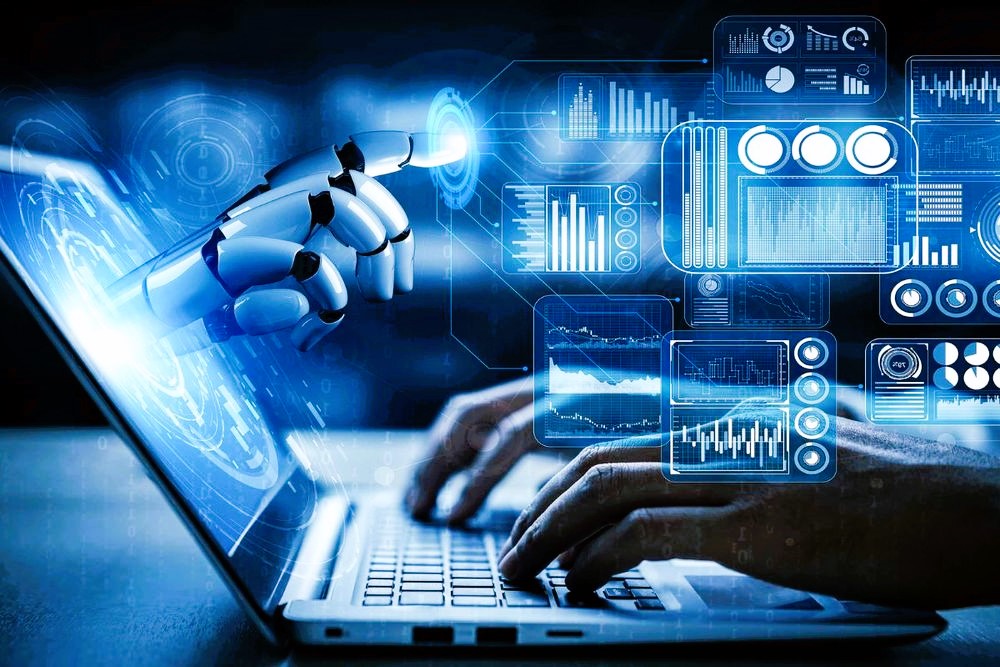Artificial Intelligence (AI) is no longer a futuristic concept but a transformative force reshaping the landscape of business operations. As businesses seek ways to enhance efficiency, reduce costs, and gain a competitive edge, the integration of AI into various facets of operations has become increasingly prevalent. This article delves into the evolving role of AI in business operations and explores the potential it holds for the future.
I. Introduction to Artificial Intelligence in Business Operations
Artificial Intelligence, often referred to as the intelligence demonstrated by machines, has evolved from being a novel idea to a fundamental driver of innovation in business processes. In the realm of business operations, AI is not just a buzzword but a strategic imperative. From automating repetitive tasks to making data-driven decisions, AI is revolutionizing how businesses operate on a day-to-day basis.
II. Automation and Efficiency Gains
One of the primary contributions of AI to business operations is automation. Automation powered by AI technologies such as machine learning and robotic process automation (RPA) enables businesses to streamline repetitive tasks, reducing the margin for error and increasing overall efficiency. Routine processes, including data entry, customer service inquiries, and inventory management, can be automated, allowing human resources to focus on more strategic, creative, and value-added tasks.
III. Predictive Analytics for Informed Decision-Making

AI’s ability to analyze vast datasets in real-time empowers businesses to make informed and predictive decisions. Predictive analytics, a subset of AI, utilizes historical data and machine learning algorithms to forecast future trends and behaviors. This capability is invaluable in optimizing supply chain management, demand forecasting, and financial planning, ultimately leading to better decision-making processes.
IV. Enhanced Customer Experience
AI plays a pivotal role in enhancing the customer experience across various industries. Chatbots powered by natural language processing (NLP) offer instantaneous customer support, addressing queries and concerns 24/7. Personalization algorithms use AI to analyze customer behavior and preferences, tailoring products and services to individual needs. This not only improves customer satisfaction but also contributes to increased customer loyalty.
V. Cybersecurity and Risk Mitigation
As businesses become increasingly digitized, the importance of robust cybersecurity measures cannot be overstated. AI is becoming a crucial component in identifying and mitigating cybersecurity threats. Machine learning algorithms can analyze patterns of behavior to detect anomalies and potential security breaches, fortifying a company’s defense against cyber threats. The top 10 cybersecurity trends to watch in 2023, read more here.
VI. Collaborative Intelligence and Human-AI Partnership
The future of AI in business operations is not about replacing human workers but about creating a collaborative environment where humans and AI systems complement each other. AI can handle data-intensive tasks, while humans bring creativity, emotional intelligence, and critical thinking to the table. This partnership fosters innovation and problem-solving, driving businesses towards unprecedented levels of success.
VII. Standardization of AI Practices
With the rapid adoption of AI in various industries, the need for standardization becomes paramount. Standardization ensures interoperability, ethical use of AI, and a common framework for development. Organizations involved in standardization, such as the International Organization for Standardization (ISO), play a crucial role in shaping the future of AI in business operations.
VIII. The Role of International Standards in AI

International standards provide guidelines and frameworks that promote consistency and reliability in AI applications. ISO, as a globally recognized standard-setting body, contributes to the development of standards that address issues such as data privacy, algorithmic transparency, and ethical considerations in AI deployment. These standards not only benefit businesses but also instill trust among consumers and stakeholders.
IX. Conclusion: Shaping a Resilient Future
As businesses navigate the complex landscape of AI integration into their operations, the role of international standards becomes increasingly vital. The future of AI in business operations is not just about technological advancements but about responsible and ethical implementation. Standardization ensures that AI technologies are developed and deployed in a manner that prioritizes fairness, transparency, and accountability.
In conclusion, the future of artificial intelligence in business operations holds immense promise. From automation and predictive analytics to enhanced customer experiences and collaborative intelligence, AI is reshaping the way businesses operate. Through the lens of international standards, businesses can navigate this transformative journey with confidence, ensuring a future where AI is not just powerful but also ethical and responsible.
For more information on international standards in AI, you can visit International Organization for Standardization (ISO).
